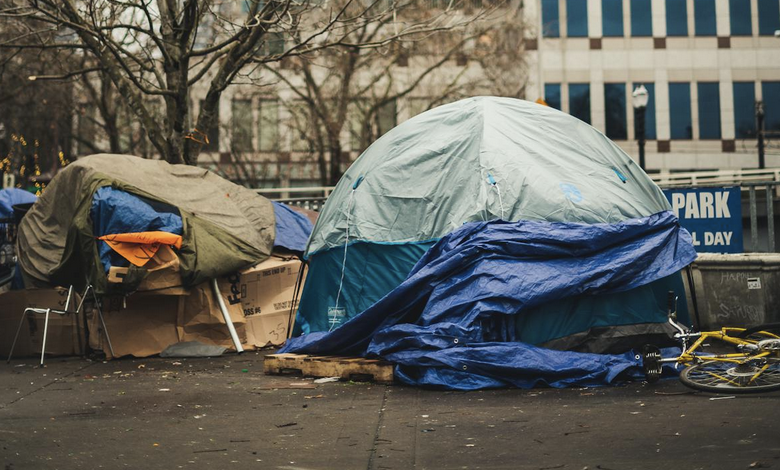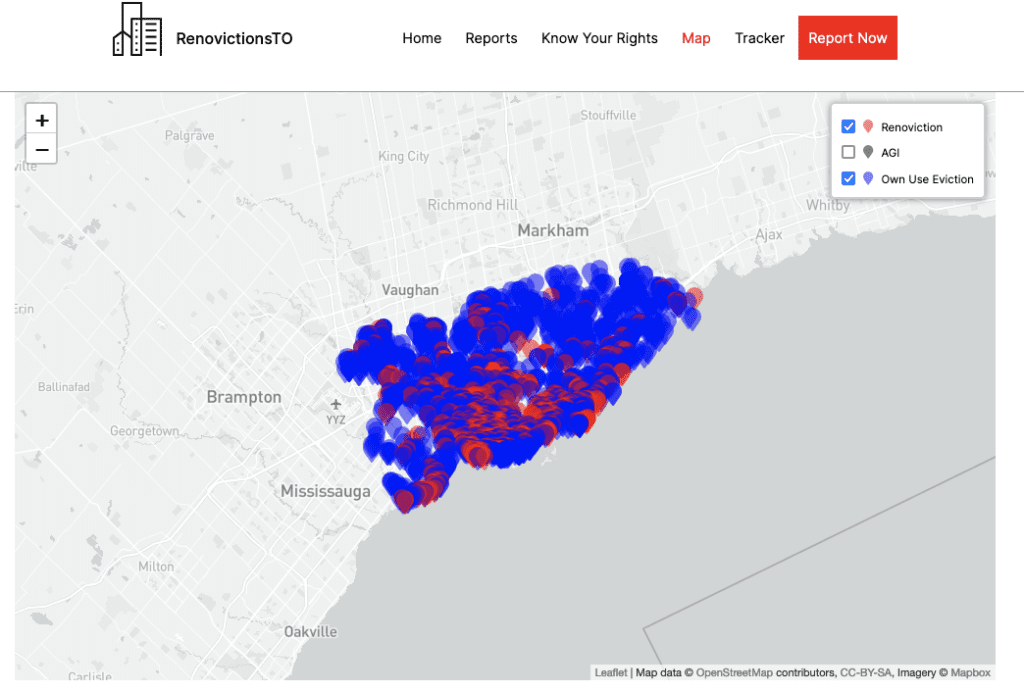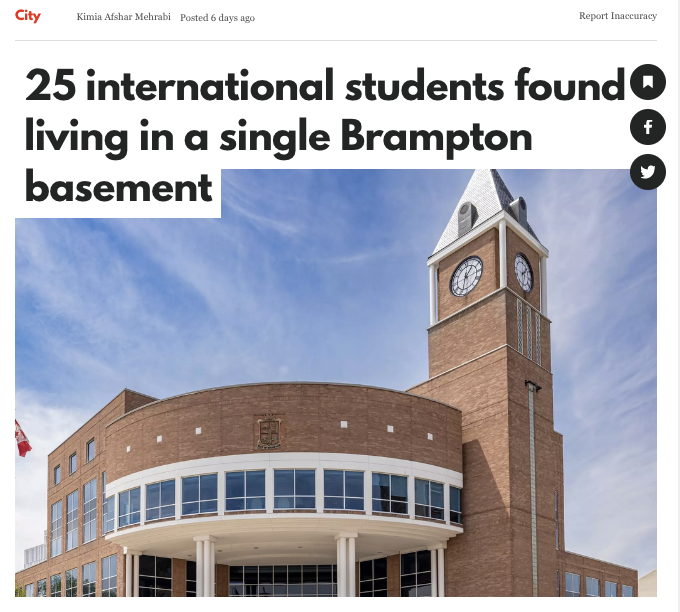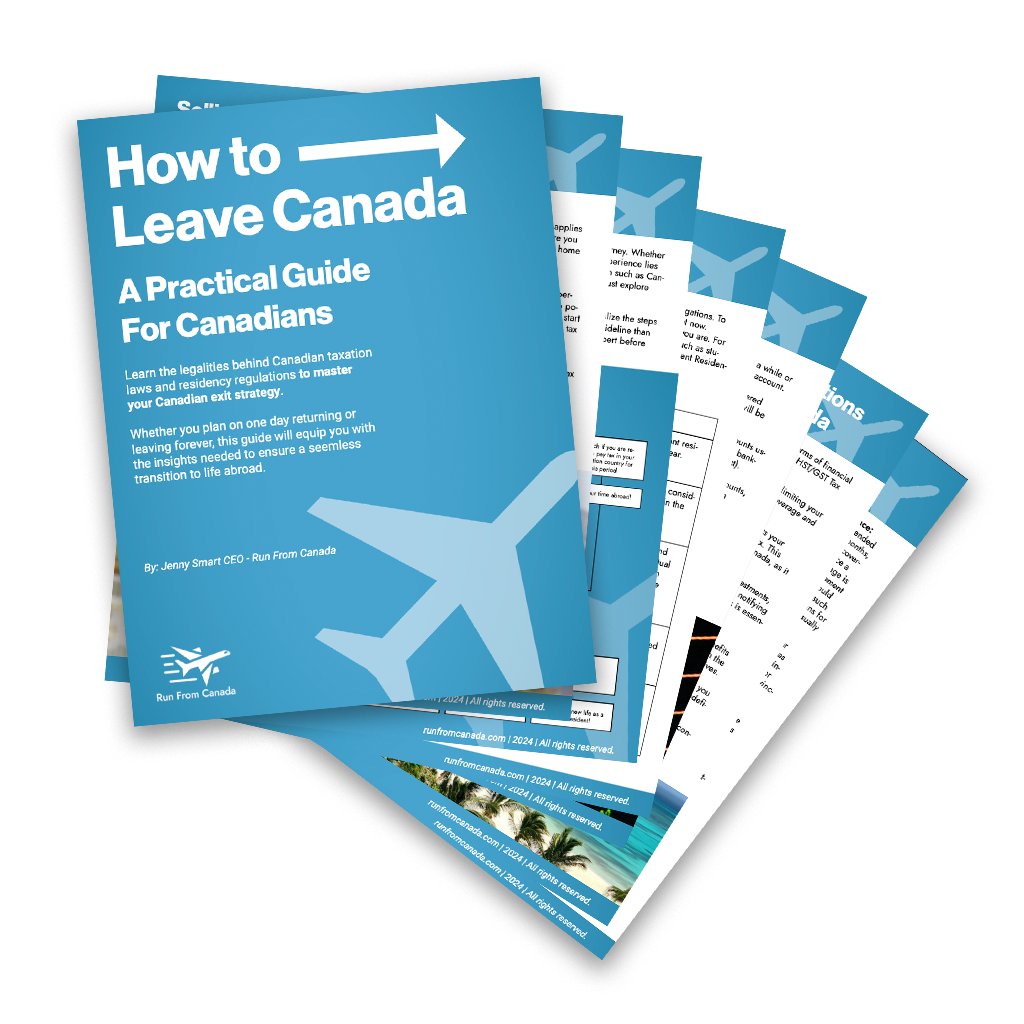
While tourism ads portray Canada as an idyllic place to plant roots, they neglect to mention one tiny detail: you just might end up planting yourself on the streets!
Yes, it’s time to address the pressing issue of the housing crisis in Canada that is affecting its social and economic well-being.
And why is homelessness in Canada more of a reality for Canadians than our American counterparts? Let’s have a look at that.
Reason 1: The Rent is Too Damn High (and Rising Faster Than Income Scale)
It’s no secret that the cost of living in Canada is high, and the cost of housing is no exception. In fact, it’s become so expensive that some are calling it a crisis.
According to a report, the average rent for a two-bedroom apartment in Toronto is $2,300 per month, while in Vancouver, it’s $2,800.
Although these are both nice cities to live in, these prices are not only unaffordable for many Canadians, but they’re also rising faster than their income scale.
In other words, the cost of living is outpacing our ability to pay for it.
Even our mortgages are playing hopscotch on the economic tightrope, leaving homeowners precariously close to joining the circus of street life. The reasons behind the surge in rent prices in Canada are intricate and involve various interconnected factors.
And what about efforts to address this escalating crisis?
Well, cue the crickets—because, as of now, it seems like the sound of silence is the only response we’re getting. It’s no wonder that homelessness is becoming a looming possibility, making Canadians ponder if heading south of the border or even out of the continent might just be the smarter move to avoid homelessness in Canada.
Looking to leave Canada?
Take the country quiz to see where you belong!
Reason 2: Reno-victions, The Fuel for Homelessness in Canada
With rents skyrocketing and vacancy rates plummeting, some Canadian landlords have gotten “creative” with evictions. Yes, another reason why homelessness is more prevalent in Canada than in the US is the phenomenon of reno-victions.
Reno-viction is when landlords evict tenants under the pretext of renovating or repairing the rental unit. But in reality, they just want to increase the rent or sell the property for a higher price. This practice is not only unethical but also illegal in most provinces. However, many landlords get away with it because of the lack of enforcement and the vulnerability of tenants. Furthermore, due to the increase in rent prices and lucrative era of AirBnB-ing your extra accommodation, these events have become commonplace in cities across Canada.
Renoviction and own-use evictions have gotten so out of control in Toronto, that a task force of housing advocates at rennovictions.to have compiled a database and map on who is doing it and where it’s happening in the city.
From the looks of it, you don’t have to be a data scientist to see wealthy landlords are cashing in on kicking out their tenants:

Reno-victions are especially harmful for low-income, elderly, disabled, and marginalized tenants, who have fewer options and resources to defend their rights and secure their housing. Reno-victions also contribute to the loss of affordable and social housing stock, which exacerbates the housing crisis and the rise of homelessness in Canada.
To prevent reno-victions, some cities have introduced bylaws that require landlords to obtain permits, provide proof of necessity, and offer compensation or relocation assistance to tenants. However, these measures are not enough to protect tenants from the greed and dishonesty of some landlords.
There is a need for stronger and more consistent regulations, as well as more awareness and advocacy among tenants and the public. Reno-victions are not only a violation of human rights but also a threat to the social and economic fabric of Canada. We can’t afford to let this happen.
Reason 3: Immigrants? More Like Homeless-in-Waiting
While Canada brands itself as a welcoming destination for immigrants and refugees, the reality of the country’s housing situation tells a colder story. Newcomers face significant barriers to breaking into the frigid housing market, as they are often refused by landlords who are wary of renting to those without a Canadian credit history or income sources.
According to a report by Infrastructure Canada, in recent years, most of the people who identified as homeless were newcomers to Canada. Of that total, 8% indicated they were immigrants, 3% identified as refugees, and 4% as refugee claimants.
Why are newcomers more likely to experience homelessness in Canada than the general population? Some of the reasons include:
- Language barriers and cultural differences that make it hard to access services and resources
- Discrimination and racism that limit their employment and housing opportunities
- Lack of social support and networks that can help them settle and integrate
- Insufficient income and savings to afford the high cost of rent and housing
- Legal status and documentation issues that affect their eligibility for benefits and programs

With the majority of the population living paycheck to paycheck, most immigrants also lack savings for large down payments or deposits.
This compounds issues as immigrants tend to settle in the largest cities with the most unaffordable housing, like Vancouver, Toronto, and Montréal.
As a result, many immigrants experience marginal housing precarity (as seen on Blog.TO’s article) and homelessness upon arrival or in their early years in Canada.
Temporary living situations like shelters or couch-surfing with friends are common realities that contrast with the promise of a better life abroad. The housing barriers faced by immigrants also contribute to higher poverty rates and economic insecurity within immigrant communities over the long term.
Canada v US: A Losing Battle?
When comparing housing statistics between Canada and the US, it’s clear many Canadians find themselves in a losing battle.
- In terms of cost burden alone, most Canadian households spend over 60% of income on shelter, more than double the rate in the US.
- Poverty rates also tell the story, with 1 million Canadians living below the poverty line vs 38 million Americans despite a much larger population.
On the other hand, Americans benefit from stronger tenant rights that protect renters from arbitrary eviction or rent hikes, including rent control in many major cities. Security of tenure provides stability regardless of the housing market.
| Category: | Canada | USA |
| Average house price | $816,720 | $375,000 |
| House price to income ratio | 9.5 | 4.4 |
| Average Rental Price 2-Bedroom | $2405.53 CAD | $1761.23 CAD |
Some argue the nearly 1 million Canadians who have emigrated to the US in recent decades, especially young professionals and families, simply recognized a better economic reality south of the border where costs of living and starting a career are lower.
While controversial, it begs the question – how can our leaders claim to want to “build back better” if we can’t even provide basic, affordable housing? Urgent action is needed to reform housing in Canada and relieve the crushing burden, or risk more battles being lost to other nations with homes Canadians can actually afford.
So, What Now? Embrace the Great Canadian Escape!
As the statistics make clear, Canada’s housing crisis shows no signs of abating anytime soon. So, if you feel like you’re fighting a losing battle to survive under sky-high rents and unattainable home prices, it may be time to cut your losses and get creative.
That’s right, why not leave Canada altogether and explore other options beyond its borders? After all, there’s more to life than paying exorbitant rents and mortgages for tiny and shabby dwellings.
A. Looking South: The Grass is Greener on American Lawns
One of the most popular destinations for Canadians who want to escape the housing mess is the US. According to a report by Statistics Canada, more than 900,000 Canadians lived in the US in 2016, making it the largest group of Canadian expatriates. Some of the reasons why Canadians choose to move to the US include:
- Better career opportunities and higher incomes
- Lower taxes and cheaper consumer goods
- Warmer and sunnier climate
- More diverse and dynamic culture
However, if the US is not your cup of tea, don’t worry. There are many other alternatives beyond Canadian borders that you can consider for your great Canadian escape.
B. Alternatives beyond Canadian borders
Whether you’re looking for a tropical paradise, a cultural hub, or a remote adventure, there’s a place for you in the world. Here are some examples of countries that offer attractive and affordable housing options for Canadians:
- Thailand: This Southeast Asian country is known for its stunning beaches, rich culture, and delicious cuisine. It also has a low cost of living and a high quality of life. According to Numbeo, the average monthly rent for a one-bedroom apartment in the city centre of Bangkok is $548, while in Chiang Mai, it is $287. You can also buy a house or a condo for as low as $50,000.
- Portugal: This European country is famous for its history, architecture, and wine. It also has a mild climate and a friendly population. According to Numbeo, the average monthly rent for a one-bedroom apartment in the city centre of Lisbon is $1,002, while in Porto, it is $715. You can also buy a property for as low as $100,000.
- Costa Rica: This Central American country is renowned for its natural beauty, biodiversity, and eco-tourism. It also has a stable democracy and a peaceful society. According to Numbeo, the average monthly rent for a one-bedroom apartment in the city centre of San Jose is $506, while in Tamarindo, it is $600. You can also buy a property for as low as $80,000.
So to those feeling like you’re trapped in an endless housing hell, take that leap of faith – your twenties were meant for finding yourself anyway. The options beyond Canada’s borders are as vast as our emptying wallets, so what are you waiting for? Go and see what living freely and affordably really feels like! And if you’re looking for the right advice to maintain yourself while overseas, check out our Leaving Canada Guide here:

Leaving Canada? Get The Complete Guide!
Our How To Leave Canada Guide has helped hundreds of Canadians kick-start their life abroad. It’s also helped them understand how to maintain their Canadian ties or cut them regardless of their financial plans.
If you’re looking to fly the Canadian coop, this guide is your essential reading.

Leave a Reply